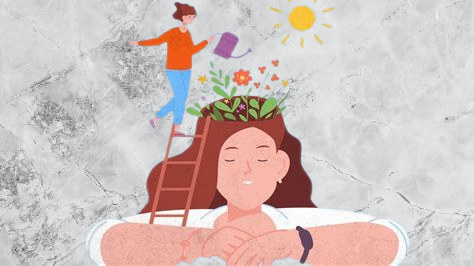Health is often viewed as a balance between physical and mental well-being. In reality, physical health and mental health are deeply interconnected, and both are essential to living a healthy and fulfilling life. The connection between these two aspects of health is undeniable—issues in one area can significantly affect the other. For a truly holistic approach to health, it’s crucial to understand why both physical and mental health matter and how their relationship influences our overall well-being.
The Interconnectedness of Physical and Mental Health

How Physical Health Impacts Mental Health
The relationship between physical health and mental well-being is not one-sided. Physical health directly influences The Link Between Physical and Mental Health: Why Both Matter. When our bodies are not functioning optimally, we may experience feelings of stress, anxiety, or even depression. Chronic illnesses such as heart disease, diabetes, and obesity can contribute to mental health challenges, leading to frustration and low self-esteem. The impact of physical health on mental health is significant—when our bodies are unhealthy, it can be difficult to maintain a positive mindset.
One of the most notable ways that physical health affects mental health is through exercise. Regular physical activity has been shown to release endorphins—natural chemicals that help to reduce stress, improve mood, and combat feelings of anxiety and depression. Additionally, exercise promotes better sleep, which in turn supports mental clarity and emotional stability. But when we neglect our physical health, whether through a lack of exercise, poor diet, or sleep deprivation, it can create a cycle of negative thoughts and feelings that make it even harder to maintain good mental health.
How Mental Health Impacts Physical Health
Just as physical health affects mental well-being, the reverse is true as well. Poor mental health can lead to a host of physical health problems. Mental health conditions such as chronic stress, depression, and anxiety are linked to a variety of physical symptoms, including headaches, digestive problems, and even cardiovascular disease. The psychological toll of stress, for example, can trigger the body’s fight-or-flight response, leading to increased heart rate and blood pressure. Over time, these stress-induced reactions can harm the cardiovascular system, leading to long-term health problems.
Additionally, mental health issues can influence behaviors that directly affect physical health. When someone is struggling with depression or anxiety, they may neglect their physical health by skipping meals, avoiding exercise, or not getting enough sleep. The stress of managing mental health challenges can make it harder for individuals to take care of their bodies, which further exacerbates the cycle of deteriorating health.
The Importance of Maintaining Balance Between Physical and Mental Health
The Positive Effects of Exercise on Mental Health
There is no denying that physical activity plays a critical role in maintaining both physical health and mental health. Exercise is one of the most effective ways to prevent and treat mental health conditions such as anxiety, depression, and stress. When we exercise, our bodies release endorphins—chemicals that naturally enhance mood and reduce stress. Exercise also increases the production of serotonin, another neurotransmitter associated with feelings of well-being.
But the benefits of exercise are not only physical. Engaging in regular physical activity has a positive impact on our mental health by promoting improved cognitive function, better sleep, and a more positive outlook on life. Whether through walking, running, swimming, or yoga, exercise provides a valuable tool for managing stress and boosting mental clarity. By making exercise a priority, individuals can enhance both their physical health and mental health.
The Role of Rest and Sleep in Supporting Both Physical and Mental Health
Another critical factor in maintaining a balance between physical health and mental health is rest and sleep. Sleep is essential for the body’s recovery and regeneration. Poor sleep, on the other hand, is associated with an increased risk of developing both physical and mental health problems. Chronic sleep deprivation can lead to weight gain, weakened immune function, and an increased risk of heart disease. Furthermore, inadequate sleep negatively affects brain function, leading to impaired concentration, mood swings, and even depression and anxiety.
Sleep is crucial for mental clarity, emotional regulation, and overall well-being. A good night’s sleep is directly linked to improved cognitive function, emotional stability, and better decision-making. Thus, prioritizing quality sleep is an important step in maintaining physical health and mental health. Establishing a consistent sleep routine and creating a peaceful sleep environment can help support both aspects of health and ensure long-term well-being.
Strategies for Improving Both Physical and Mental Health

The Impact of Proper Nutrition on Mind and Body
Nutrition is another vital component of both physical health and mental health. The foods we consume have a direct effect on how our bodies and brains function. A well-balanced diet rich in vitamins, minerals, and essential nutrients supports bodily functions, boosts energy levels, and enhances mood. Conversely, a poor diet high in processed foods, sugars, and unhealthy fats can lead to weight gain, fatigue, and an increased risk of mental health issues.
Certain nutrients are particularly beneficial for supporting both physical health and mental health. Omega-3 fatty acids, found in foods like fish and nuts, have been shown to improve brain function and reduce symptoms of depression and anxiety. Magnesium, found in leafy greens and legumes, helps to regulate stress levels and improve sleep quality. A balanced diet that includes these essential nutrients can go a long way in promoting overall well-being.
Stress Management Techniques: Meditation and Yoga
Chronic stress is one of the biggest threats to both physical health and mental health. Finding effective ways to manage stress is crucial for maintaining balance. One powerful method for managing stress is through mindfulness practices such as meditation and yoga. These practices encourage relaxation, increase self-awareness, and promote a sense of calm.
Meditation has been shown to reduce levels of the stress hormone cortisol, which, when elevated, can contribute to both physical and mental health problems. Yoga, on the other hand, combines physical movement with deep breathing and mindfulness, helping to release tension in the body and calm the mind. Both practices promote relaxation and provide a valuable tool for managing the pressures of daily life.
Why Mental Health Care is Essential in Overall Health Maintenance
The Interaction Between Mental Illness and Physical Health Conditions
The link between mental health and physical health becomes even more evident when we consider individuals with chronic health conditions. Mental health care is just as important as physical care in managing long-term illnesses. For instance, people living with chronic conditions such as diabetes, heart disease, or cancer often experience feelings of stress, anxiety, or depression due to the physical toll of their illness.
Managing mental health alongside physical health is essential for improving quality of life and ensuring better health outcomes. In many cases, addressing mental health issues can lead to improved adherence to medical treatment plans, healthier behaviors, and a stronger ability to cope with the challenges of living with a chronic condition.
The Importance of Prevention Through Holistic Care
Preventing mental health and physical health issues before they arise is far more effective than treating them after the fact. A holistic approach to health care emphasizes the importance of looking at the whole person—body, mind, and spirit. By prioritizing both mental health and physical health, individuals can reduce their risk of developing chronic conditions, improve their quality of life, and ensure long-term well-being.
Regular check-ups, self-care practices, and seeking help when needed are all part of a proactive approach to health. Preventing illness and supporting both physical health and mental health is not just about avoiding disease—it’s about cultivating a life of vitality, joy, and balance.
Conclusion: How Focusing on Both Physical and Mental Health Can Lead to a Better Life

The importance of nurturing both physical health and mental health cannot be overstated. These two aspects of health are intertwined, and focusing on one without the other can lead to imbalances that affect overall well-being. By prioritizing physical health through exercise, proper nutrition, and adequate sleep, as well as addressing mental health through stress management and seeking support when necessary, we can live more balanced, fulfilling lives.
When we care for both our bodies and our minds, we create a foundation for better health, happiness, and longevity. Ultimately, the connection between physical health and mental health is key to living our best lives. Prioritize both, and you’ll reap the benefits of a healthier mind, body, and life.






[…] Changes in mood or increased irritability can significantly impact an individual’s daily life, affecting various aspects including interpersonal relationships, work performance, and overall quality of life. Mood fluctuations are often common indicators of underlying mental health concerns, and when such changes become noticeable, they may signal that further attention is required. […]